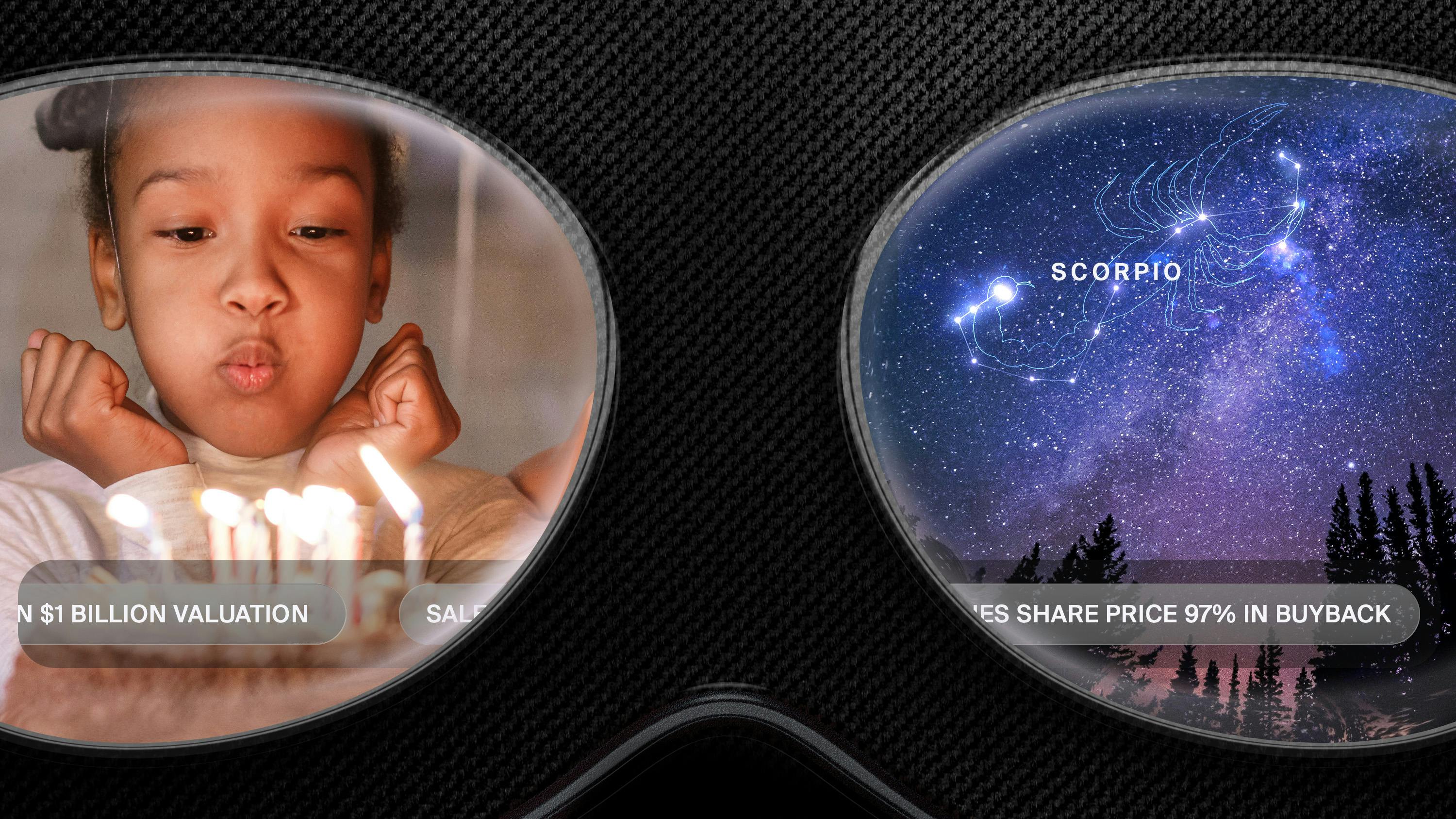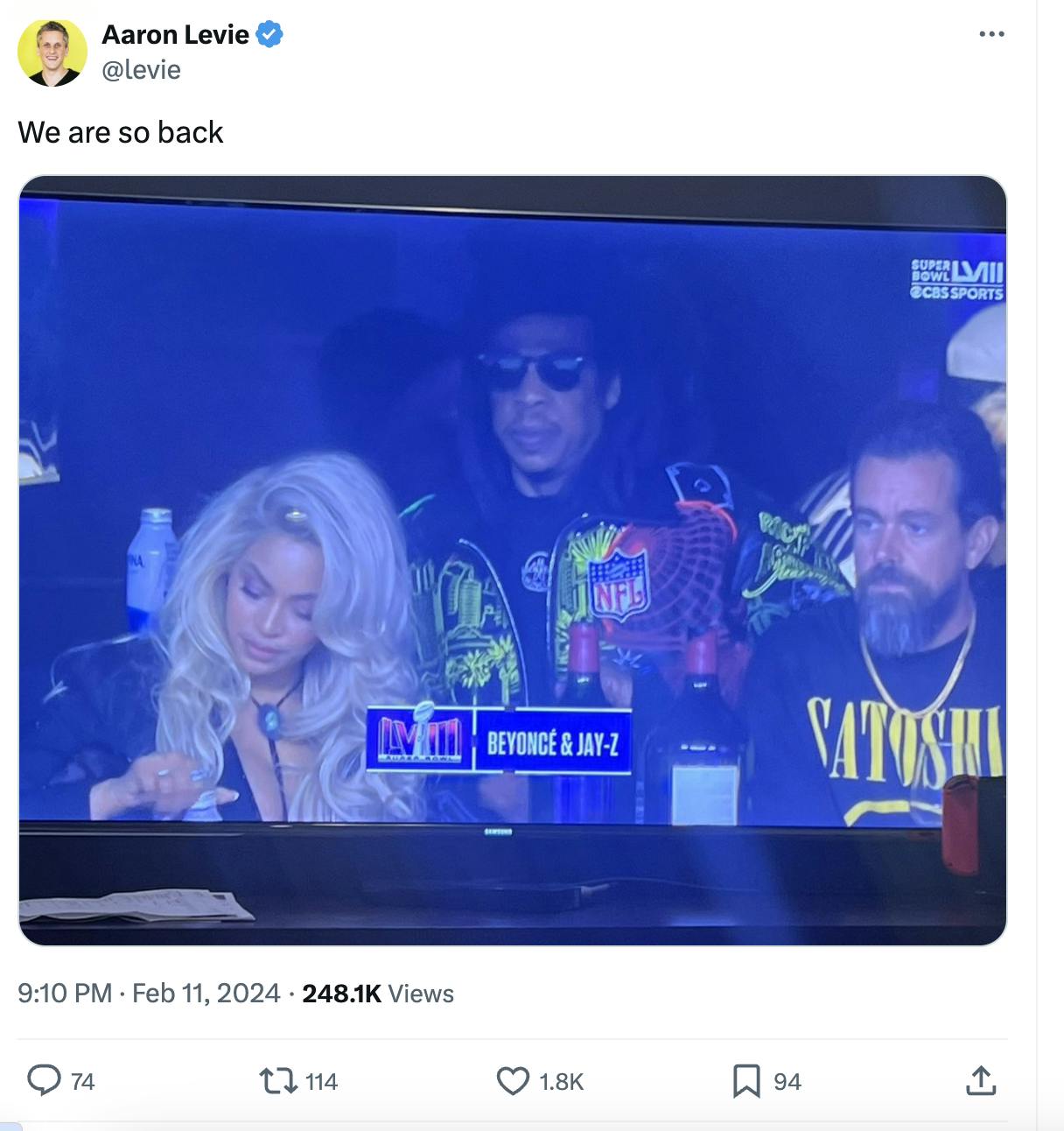When You’re Really a Twitter, But You Want to Be an Uber
Welcome to your Weekend!
A couple days ago, Mark Zuckerberg had quite a lot to say about his company—and someone else’s. Specifically, he talked about how Meta Platforms’ virtual reality headset, the Quest (which starts at $499), compares to Apple’s VR headset, the Vision Pro ($3,499). “I expected Quest would be a better value for most people,” Zuckerberg said in an Instagram video. But after using a Vision Pro, he changed his tune. “I don’t just think that Quest is the better value,” he said, “I think Quest is the better product—period.”
I don’t mention this to validate Zuckerberg’s comparison. On the contrary, I disagree. I’ve used the Quest. It’s nice. And I’ve used the Vision Pro (to write this story about its best apps). It delivers one of the most jaw-dropping visual experiences ever. I can recall just a handful of other products that left me so stunned. The iPhone, for one. Maybe the PlayStation 2, too.
No, I’m still thinking about Zuckerberg’s comments because CEOs almost never directly critique a competitor, and because it’s amusing to imagine other titans of industry following his lead. Tinder’s new chief executive, Faye Iosotaluno, the subject of this week’s Big Read profile, might cause a commotion at home if she did the same with Bumble; she’s happily married with two kids. And what—Bezos is gonna Twitch-stream a part-by-part breakdown of a SpaceX rocket as he orbits off to Mars? The McDonald’s CEO serves up his Frosty thoughts? Come on, it’s not like Musk would ever test his kung fu skills in a live grudge match with Zuc—ah, right, I sense a pattern of behavior.—Abram Brown
The Big Read ‘I Want My Daughters to Be on Tinder’: A New CEO Hopes to Make Absolutely Everyone Fall in Love
‘I Want My Daughters to Be on Tinder’: A New CEO Hopes to Make Absolutely Everyone Fall in LoveSometimes when I get down about dating, I grouse about it to Annie Goldsmith, a friend and frequent Weekend contributor, who enjoys writing about Dating Inc. It’s somewhat ironic, really, since Annie has hardly ever laid as much as an index finger on a dating app. The lucky woman met her doting boyfriend through mutual friends—“the old-fashioned way,” as she puts it. But maybe that distance is what allows her to report so compellingly on Tinder’s new CEO, Faye Iosotaluno, and her bid to end the company’s endless cycle of failed chief executives and mismanaged turnarounds.
What makes Annie’s professional interest and personal disinterest even more ironic is that Annie belongs to the precise demographic Iosotaluno wants to win over. She’s among a generation of 20-somethings who increasingly seem to have little love for dating apps. Iosotaluno is less worried about people like me, an older cohort that remembers in-person courtship (I write that and can instantly smell the burgers at Julius’ in the West Village) and appreciates the convenience of digital wooing. But my memory is also good enough to consider Tinder’s sad fate over the last decade: Its rise began around the same time as Twitter’s and Uber’s, but its trajectory has more closely mirrored that of the former rather than the latter.
The Top 5 The Best Vision Pro Apps (So Far)
The Best Vision Pro Apps (So Far)I had the chance to Zuck it up this week and answer a pressing question in Silicon Valley. Namely, what’s a face computer good for? Once I got my hands on a Vision Pro and spoke to a dozen early users, I found a couple answers: gazing at the night sky, doing puzzles and re-appreciating “Avatar: Way of Water.”

Listening: Everything, Everywhere, Everyday
The burgeoning popularity of “Everything Everywhere,” a 3.5-year-old podcast, shocks even its host and creator, Gray Arndt, a soft-spoken fellow who lives in Wisconsin. It had 1.5 million downloads last month, a 50% increase from a month earlier. Arndt’s best guess as to why? “I guess word of mouth is getting faster and faster and faster,” said the former travel photographer and blogger. A recent spotlight from Apple on its Podcasts app helped, too, he conceded.
Well, I’ll happily devote a few more words to “Everything Everywhere,” which credibly bills itself as a “daily podcast for the intellectually curious.” The pod’s short episodes manage that tricky balance of substance and fun as they stretch your curiosity across such topics as the Whiskey Rebellion, Marcus Antonius and transuranium elements—and that’s all just in the past week. “Everything, Everywhere” initially began as Arndt’s lockdown project (“I had lost 95% of my income”) and grew from there. “When I started, I created a list of 100 show ideas,” he said. He’s done 1,300 or so episodes since, but the list only continues to expand. “It’s about 950 ideas now.”—A.B.
Reading: A Public Plea
As a teenage math prodigy, one of Carrie Sun’s lofty life goals was “to discover a theory of everything,” she recounts in her new book, “Private Equity: A Memoir.” But when she reached her 30s, she instead found herself answering phones and plating lunches as the well-compensated assistant to one of the world’s top hedge fund managers. (Sun keeps both the fund and the manager anonymous; industry insiders can likely guess their identities.) Her billionaire boss comes across as cold and cruel, but in a rare moment of vulnerability, he did admit to her that he too fell short of his own dream: becoming a spinal surgeon.
“I think of him as being stuck in the same system that we are all stuck in,” a relentless drive for profit that alienates us from each other and ourselves, Sun told me this week. She did eventually quit, fearing a mental breakdown.
“Private Equity” comes packed with juicy details about the firm’s day-to-day: the loyal employees fired on a whim, her boss’s bizarre fixation on her weight. But Sun didn’t write the book for boardroom voyeurs. Instead, she intends it as a warning, and she hopes anyone experiencing workday burnout will read it, take a long, tough look at themselves in the mirror and ask: “Are you giving up something of yourself? And is that something you’re willing to trade for what you’re getting back?”—Julia Black
Watching: When BlackBerry Ruled the Earth
I hadn’t slept much when I first met Jim Balsillie, then co-CEO of the company once known as Research in Motion. It was 2006 or so, and I was a cub Wall Street Journal reporter who had taken a redeye to a swanky conference in Barcelona to interview him about his company’s blockbuster device, the BlackBerry. The iPhone hadn’t yet come out, so Balsillie was riding high and partied late into the evening, I recall.
All of this came flooding back to me when I took a screenwriter friend’s recommendation and finally saw “BlackBerry” last week. The excellent film, which came out last year, is the story of the titular device’s rise and the beginning of its dramatic fall. Having written hundreds of articles about BlackBerry—during and after the launch of the iPhone that killed it—I didn’t feel like I needed to relive it all. But I’m so glad I did. While “BlackBerry” may be a movie about business, it is not a boring business movie. It draws enormous energy from its depiction of the guy I met in Barcelona, Balsillie, and then–co-CEO Mike Lazaridis, the technical wizard of the duo. The movie is a must-see for any founder or founding team or anyone who studies founders.
Today, their former corporation, which rechristened itself BlackBerry, makes security products. It has decommissioned its phones. Even so, “BlackBerry” will make you nostalgic for that scroll wheel and keyboard, at least for a second.—Jessica E. Lessin
Makes You Think
Well, it is a game of Blocking and tackling.
